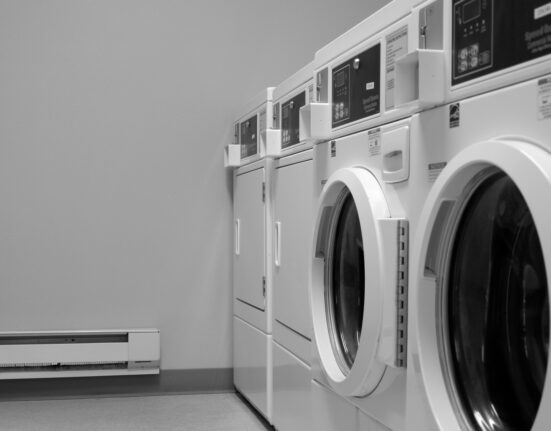Stress is an inevitable part of life, but knowing how to manage it effectively can make all the difference between thriving or feeling overwhelmed. With the rise of online resources like BetterHelp and techniques such as mindfulness and distance energy healing, finding ways to achieve work-life balance is easier than ever.
This guide explores stress management techniques designed to help you lead a more balanced and centered life. From practicing mindfulness to considering online therapy and holistic approaches, learn actionable steps to take control of stress and elevate your well-being.
Why Addressing Stress Matters
Stress isn’t just something that sits in your mind—it affects your body, productivity, relationships, and overall health. Left unchecked, it can contribute to heart disease, anxiety, depression, and other chronic conditions. Managing stress isn’t an indulgence; it’s a necessity for achieving a well-functioning, enjoyable life.
Understanding the importance of stress management is the first step toward building a healthier routine. Here are evidence-based strategies and tools to begin your stress-relief journey.
Practice Mindfulness
What is mindfulness?
At its core, mindfulness involves focusing on the present moment without judgment. It’s about being fully aware of what’s happening within and around you, enabling you to respond thoughtfully rather than react hastily.
How does mindfulness reduce stress?
Mindfulness helps you distance yourself from the cyclical patterns of stress. By cultivating awareness, you’ll learn to identify stress triggers while remaining calm and collected. Research supports that regularly practicing mindfulness reduces cortisol levels (the body’s stress hormone) and improves emotional resilience.
Simple mindfulness exercises to try
- Deep breathing: Breathe in for four counts, hold for four counts, and exhale for four counts. Repeat.
- Body scan meditation: Focus on different parts of your body, from head to toe, to release tension.
- 5-4-3-2-1 Technique: Notice five things you see, four you can touch, three you hear, two you smell, and one you taste.
Even small, consistent mindfulness rituals can make a big impact on how you handle daily pressure.
Consider Online Therapy
Why online therapy is effective
Therapy has long been one of the best tools for stress management, and platforms like BetterHelp are making it accessible to more people. Whether you’re balancing remote work or facing challenges that impact your mental health, online therapy offers flexibility and privacy to receive the support you need.
Benefits of virtual counseling
- Convenience: Schedule sessions around your busy day.
- Affordability: Online therapy like BetterHelp often costs less than traditional in-person therapy.
- Variety: Get matched with therapists specializing in stress management, mindfulness, trauma, and more.
Online platforms allow you to open up at your own pace while helping you build tools to cope with stress effectively.
Prioritize Movement for Both Mind and Body
Exercise as a stress reliever
Physical activity isn’t just for fitness; it’s a proven way to lower stress levels. Exercise releases endorphins, which act as natural mood lifters.
Simple ways to stay active
- Go for a 30-minute walk daily, paying attention to your steps, breath, and environment.
- Try stretching or yoga for a double benefit of movement and mindfulness.
- Set a timer for frequent micro-breaks to stretch, especially during long work hours.
Integrating movement into your routine keeps both your body and mental health in prime shape.
Explore Distance Energy Healing
What is distance energy healing?
Distance energy healing is a holistic practice where healers use energetic techniques to target emotional, mental, and physical distress from afar. This approach focuses on balancing your energy fields to cultivate peace and reduce stress.
How can it support stress management?
- Creates a feeling of calm and relaxation, even without direct interaction.
- Supports mindfulness by encouraging self-reflection and intentional focus.
- Complements traditional stress management methods like therapy and exercise.
Whether through Reiki practitioners or other energy-healing techniques, this method offers a unique perspective to aligning mind and body wellness.
Build a Work-Life Balance You Can Stick To
What does work-life balance mean?
Work-life balance is less about splitting your time equally and more about setting healthy boundaries between work obligations and personal life.
How to improve balance
- Set limits: Communicate work hours and respect your downtime.
- Unplug regularly: Log off emails and notifications after work hours.
- Make time for hobbies: Engage in activities that bring you joy.
The goal is to create harmony, where you feel fulfilled both professionally and personally.
Surround Yourself with Support
Cultivating a support network
Human connection is essential for well-being. Having a network of friends, family, or professionals to lean on makes managing stress far easier.
Join communities of like-minded individuals
- Participate in mindfulness workshops or webinars.
- Connect with others using BetterHelp discussion forums.
- Find shared-interest groups focused on work-life balance or self-care.
Engaging with others brings perspective and reminds you that you’re not alone on your stress-relief journey.
Invest in Your Well-being Today
Stress doesn’t need to control your life. With tools like mindfulness, online therapy through platforms like BetterHelp, and even holistic practices like distance energy healing, stress management is no longer out of reach.
Start by incorporating small yet effective techniques into your daily routine. Feel lighter, happier, and more in control as you work toward achieving that elusive work-life balance.
Take Action Now
Looking for guidance to manage stress better? Explore online therapy sessions with BetterHelp to discover methods tailored just for you. Sign up today and take charge of your mental wellness.








Leave feedback about this